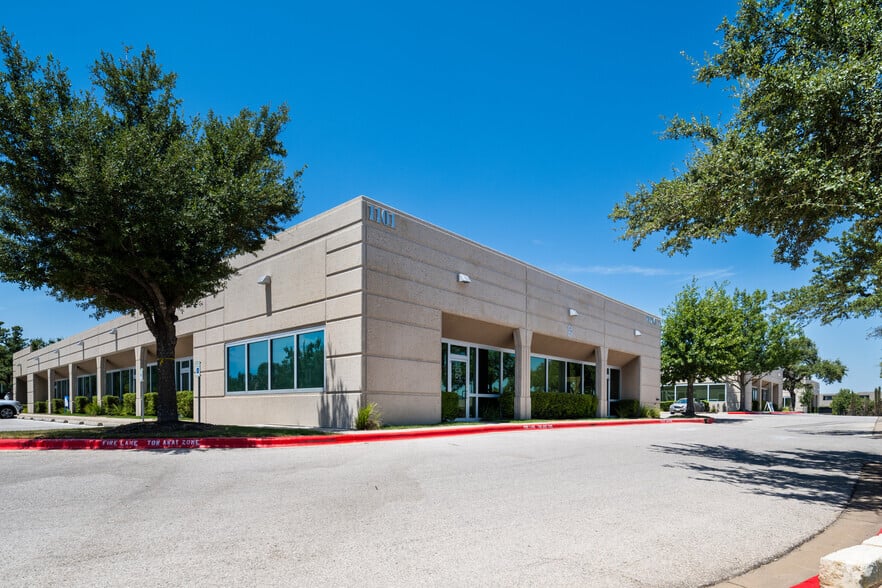About Oakvine Recovery Center
Oakvine Recovery Center is located in a modern office building on Gattis School Road in Round Rock, Texas. They have onsite parking for you and your loved ones. They offer behavioral health services to address and treat co-occurring mental health issues and substance use disorder.
The facility is close to many restaurants, hotels and local retail stores with access to residential neighborhoods, Highway 45 and I-35, for transportation to and from your treatment. You can also access several natural landmarks nearby including Old Settlers Park, Lake Pflugerville Park, Pfluger Park and Northeast Metropolitan Park.
When you arrive at Oakvine they will assess you for your acute care needs. They offer detox treatment through their inpatient care program. As you undergo the stabilization process, they will work with you to address past traumas. The staff will also monitor your medication intake to ensure you are being treated with the right level of care.
Addiction Recovery Programs for All Ages
They offer unique addiction and recovery programs for adults, teens and seniors with specialized group therapy sessions, one-on-one counseling and access to community care programs. They address gender and age-specific issues you may be facing and support the unique challenges that may have led to your addiction.
IOP and PHP Programs
They offer an IOP and PHP program for more intensive treatment utilizing dialectical behavioral therapy and cognitive behavioral therapy to help you build coping skills. The staff focuses on real world scenarios that you may encounter in life so you’re prepared to address difficult situations in a safe and healthy way.
Aftercare Support
I think it’s great that they offer aftercare support, which may include case management to provide access to housing resources, jobs, sober living homes and community support programs. You’ll also receive wellness support to understand the benefits of nutrition, the right amount of sleep and mindfulness.
Latest Reviews
We believe recovery is as diverse as the people brave enough to embark on the journey and it’s wonderful to hear that the individualized care and group connections make a real difference. :) Your story is inspiring and we’re so proud of the strength and openness you’ve shown along the way.
Please know you’ll always be part of the Oakvine family. We’re here cheering you on as you continue moving forward in recovery. 💚 - Oakvine
Rehab Score
Accepted Insurance
Other Forms of Payment
Private insurance refers to any kind of healthcare coverage that isn't from the state or federal government. This includes individual and family plans offered by an employer or purchased from the Insurance Marketplace. Every plan will have different requirements and out of pocket costs so be sure to get the full details before you start treatment.
Self-pay involves paying for treatment out of your own pocket. You can use savings or credit, get a personal loan, or receive help from family and friends to fund your treatment. If you don't have insurance or your insurance plan doesn't cover a specific program, self-pay can help ensure you still get the care you need.
Medicaid is a state based program that helps lower-income individuals and families pay for healthcare. Medicaid covers addiction treatment so those enrolled can use their coverage to pay for rehab. When a program accepts Medicaid the client often pays very little or nothing out of their own pocket.
Medicare is a federal program that provides health insurance for those 65 and older. It also serves people under 65 with chronic and disabling health challenges. To use Medicare for addiction treatment you need to find a program that accepts Medicare and is in network with your plan. Out of pocket costs and preauthorization requirements vary, so always check with your provider.
Addiction Treatments
Levels of Care
Commonly known as "day treatment," a partial hospitalization program (PHP) offers intensive addiction treatment while allowing you to return home each day. It can serve as an alternative to inpatient hospitalization or as a step-down option. Depending on your needs, PHP treatment typically averages 90 days with a weekly requirement of 6-8 hours a day. PHP treatment offers a variety of therapeutic interventions such as individual counseling, group therapy, and psychoeducation. Oftentimes PHP treatment can be fully covered by insurance.
Intensive outpatient programs offer high-level care for clients as an increased risk of relapse, including those in early recovery, those with a strong history of relapse, and those experiencing a crisis. Intensive outpatient treatment typically requires clients to engage in nine to 20 hours of care weekly, with treatment modalities that combine psychotherapy and recovery education, and holistic therapies, such as acupuncture and animal therapy. Medication assisted treatment (MAT) is also common in alcohol and/or opioid recovery.
Treatments
Substance abuse treatment is available in Texas for anyone who's struggling with drug or alcohol addiction. These programs usually provide a comprehensive assessment and individualized treatment plan, and include evidence-based treatments, like therapies such as cognitive-behavioral therapy (CBT) to reframe unhelpful coping strategies, and dialectical behavior therapy (DBT) to help with emotional regulation and stress.
Programs
Teen programs are designed to address the unique pressures teens face, pressures that can drive them to experiment with dangerous, addictive substances. They need programs that meet them exactly where they are and give them tools for long-term recovery. Therapy can help teenagers understand and work through underlying issues so they can reclaim the life ahead of them.
Nearly one million adults age 65 and older live with a substance use disorder. Treatment providers who specialize in senior care understand the social, psychological, and physical effects of aging and how they relate to recovery. They can help clients address particular challenges and risks they may face as they get older such as overdosing and medication interactions and dependencies.
Clinical Services
Individual therapy offers you a confidential space to address the complexities of your drug or alcohol addiction. Your therapist guides these personalized sessions to help develop self awareness and manage stress. This promotes sustained sobriety and overall well being.
Peer support is an important aspect of group therapy sessions for drug and alcohol addiction. As you and your peers share stories and encourage each other, it fosters a sense of community and belonging that helps you process your feelings and reduces the sense of isolation that is associated with addiction.
The purpose of family therapy is to create a supportive and understanding family dynamic within the family unit. Therapists help individual members to identify and change harmful behavior patterns and improve communication. This provides a stable foundation for the family and their loved one's recovery.
Together with an experienced trauma therapist, you work on healing emotional wounds from traumatic experiences within a trauma therapy environment. Your therapist will help you process the experience of the trauma, which promotes emotional healing and improves your overall mental health.
Contact Information
2631 Gattis School Rd Bldg 4 Suite 455, Round Rock, TX 78664









